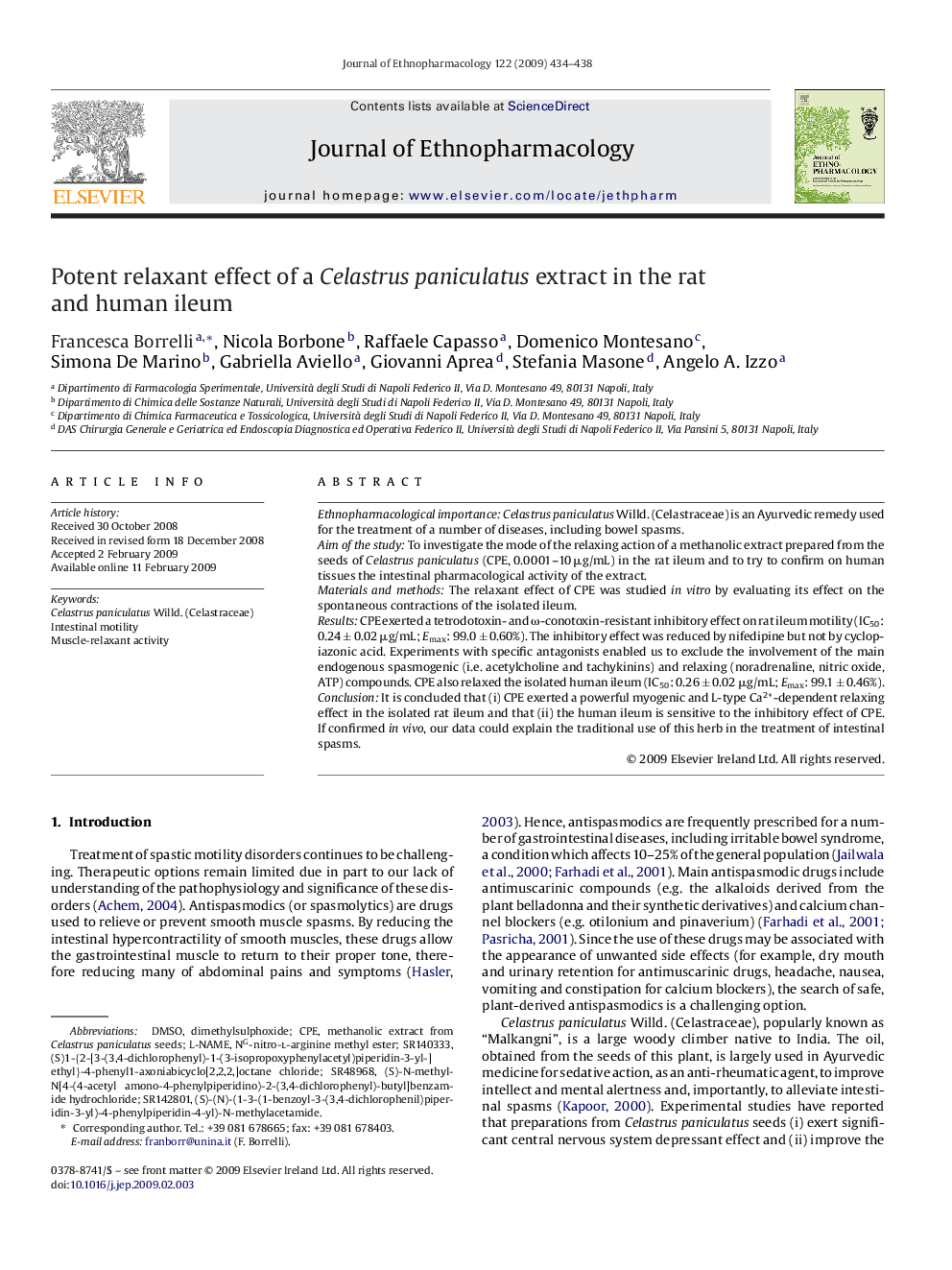| Article ID | Journal | Published Year | Pages | File Type |
|---|---|---|---|---|
| 2546872 | Journal of Ethnopharmacology | 2009 | 5 Pages |
Ethnopharmacological importanceCelastrus paniculatus Willd. (Celastraceae) is an Ayurvedic remedy used for the treatment of a number of diseases, including bowel spasms.Aim of the studyTo investigate the mode of the relaxing action of a methanolic extract prepared from the seeds of Celastrus paniculatus (CPE, 0.0001–10 μg/mL) in the rat ileum and to try to confirm on human tissues the intestinal pharmacological activity of the extract.Materials and methodsThe relaxant effect of CPE was studied in vitro by evaluating its effect on the spontaneous contractions of the isolated ileum.ResultsCPE exerted a tetrodotoxin- and ω-conotoxin-resistant inhibitory effect on rat ileum motility (IC50: 0.24 ± 0.02 μg/mL; Emax: 99.0 ± 0.60%). The inhibitory effect was reduced by nifedipine but not by cyclopiazonic acid. Experiments with specific antagonists enabled us to exclude the involvement of the main endogenous spasmogenic (i.e. acetylcholine and tachykinins) and relaxing (noradrenaline, nitric oxide, ATP) compounds. CPE also relaxed the isolated human ileum (IC50: 0.26 ± 0.02 μg/mL; Emax: 99.1 ± 0.46%).ConclusionIt is concluded that (i) CPE exerted a powerful myogenic and L-type Ca2+-dependent relaxing effect in the isolated rat ileum and that (ii) the human ileum is sensitive to the inhibitory effect of CPE. If confirmed in vivo, our data could explain the traditional use of this herb in the treatment of intestinal spasms.
